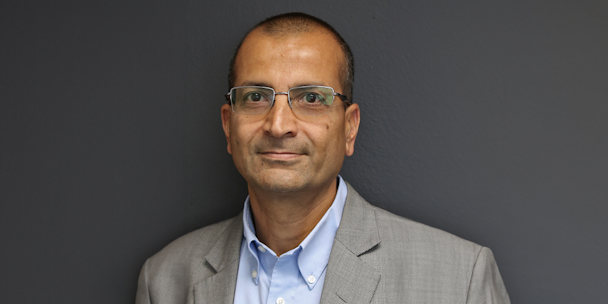What does a chief marketing science officer do all day? Rapp’s Amit Deshpande explains
In the latest installment of our series demystifying the industry’s many job titles, Amit Deshpande – chief marketing science officer at Omnicom agency Rapp – unpacks his role.

Amit Deshpande, chief marketing science officer at Rapp / Rapp
Marketing science is the application of data analysis and data science to solve marketing problems. The idea is to understand the individual to very granular levels of specificity and then use that insight to drive very differentiated experiences.
It brings the data science and creative aspects of marketing into one whole to drive impact.
I started in this space before it was cool. I was always good at math and science and I love solving problems using data and analysis. Prior to joining Rapp, I served as a partner and regional head at Blend360, and before that, I shaped marketing sciences disciplines at Epsilon and FedEx for 20 years.
Advertisement
Today, I report to the CEO of Rapp, Marco Scognamiglio, and lead a global team of marketing scientists from across the world. Depending on how you count it up between Rapp and OPMG, we’re between 250 and 1,000 people. We tap into the different markets of the world, not only because we have global clients but because we are always looking for the best possible talent.
The skillsets that are required are in high, high demand, but short supply. So we ensure that we recruit and nurture the best talent possible from across the world; we have open positions and we are growing in pretty much every geography.
We are creating innovative and data-driven approaches. Those data-driven approaches are essentially to enhance our clients’ campaigns, optimize customer experiences and drive measurable results.
Advertisement
We want to ensure that the results are there to be seen, that they can be quantified and that they benefit our clients that benefit our clients’ customers. We focus on leveraging advanced data science and AI. But we do so in a fashion that demystifies the complexity for our clients.
Most of our clients today want to be data-driven. We provide them with insight that allows them to make progress. Or, we provide them with advancements in AI, such as accessible tools that help automate both routine and traditional creative activities or integration of conversational AI that democratizes AI – instead of relying on thousands of records, you can ask questions in English and get answers.
We bring together the data, the content, and the decisions that are involved to enhance customer interactions while addressing privacy and ethical considerations. None of this becomes possible unless we have a talented and high-performance marketing science team.
I speak to clients every day, either about delivering our solutions or in pitches. You have to put yourself in their shoes. The key is being able to converse in plain English and not get caught up in the buzzwords of the day, being conscious and mindful that the solutions that may be used may be complex.
Don’t worry about jargon – the words are less important than the story. Telling the story of the sausage-making is not important. What is important is telling the story of the findings and of the analysis – what it is that the client should do to drive impact and how we can help them do that.
Suggested newsletters for you
Being able to adapt those communications based on based on who or who you are engaging with is important. A conversation with the CMO is going to be very different than a conversation with the chief data officer versus a chief information officer. This is easier said than done.
What’s the problem that we are solving? What data do we have? What is the best quantitative approach that we can use? Having done through that analysis and having developed the model, what are the key findings? Based on those, what are the recommendations, or what are the changes that we would want to try? And if we did those changes, what is the expected business impact?
The core business questions have not necessarily changed. But AI is top of mind for everybody. What does it mean for me? How do I make it real? How do I generate quick wins so that this isn’t something that just exists in Powerpoint? What are the steps that I need to take in the next month in the next three months?
To be a successful data scientist, one has to have depth from a skill set point of view, but then you also need to have brand expertise as well in terms of thinking through a problem.
As told to Sam Bradley
